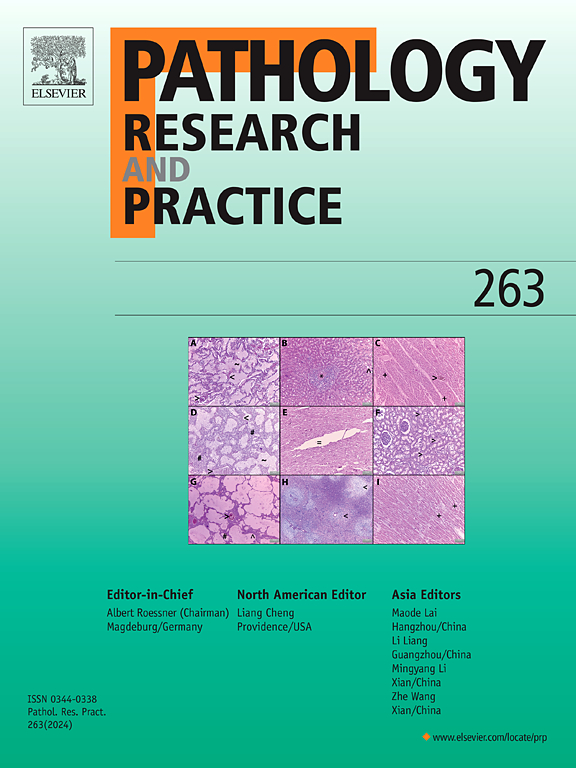Unraveling PCOS therapies: Pharmacotherapeutic strategies and emerging therapeutic targets
IF 3.2
4区 医学
Q2 PATHOLOGY
引用次数: 0
Abstract
Polycystic ovary syndrome (PCOS) is a common health problem that can affect the reproductive health of women. A typical characteristic of PCOS is infertility, androgen excess, and anovulation. In addition, a disorder also accompanies other pathologies like obesity and hyperinsulinemia, with an increased threat of cardiovascular complications. Current treatment strategies focus on the reduction of PCOS symptoms primarily through pharmacological medications such as metformin, oral contraceptives, and anti-androgenic agents. Since these medications do not encompass all the outcomes of PCOS, there is a critical need for research to identify more effective treatments. Given the rising global prevalence of PCOS and its association with cardiovascular and metabolic risks, there is an urgent need for better therapeutic options with minimal adverse effects. This review integrates the current pharmacotherapies and emerging molecular and cellular targets, offering novel directions for comprehensive PCOS management. Additionally, this review explores various novel targets such as neuropeptides, inflammasome, anti-inflammatory agents, gene therapy/microRNA (miRNA) based therapies, adipokines-based therapies and stem cells-based therapy. Furthermore, we highlight key areas requiring further research to improve PCOS management.
揭示多囊卵巢综合征治疗:药物治疗策略和新出现的治疗靶点。
多囊卵巢综合征(PCOS)是一种影响女性生殖健康的常见健康问题。多囊卵巢综合征的典型特征是不育、雄激素过量和无排卵。此外,一种疾病还伴随着其他病理,如肥胖和高胰岛素血症,心血管并发症的威胁增加。目前的治疗策略主要是通过药物治疗如二甲双胍、口服避孕药和抗雄激素药物来减轻多囊卵巢综合征的症状。由于这些药物不能涵盖多囊卵巢综合征的所有结果,因此迫切需要研究以确定更有效的治疗方法。鉴于多囊卵巢综合征的全球患病率不断上升及其与心血管和代谢风险的关联,迫切需要更好的治疗方案和最小的不良反应。本文综述了目前的药物治疗方法和新兴的分子和细胞靶点,为PCOS的综合治疗提供了新的方向。此外,本文还探讨了各种新的靶点,如神经肽、炎性体、抗炎剂、基于基因治疗/microRNA (miRNA)的治疗、基于脂肪因子的治疗和基于干细胞的治疗。此外,我们还强调了改善PCOS管理需要进一步研究的关键领域。
本文章由计算机程序翻译,如有差异,请以英文原文为准。
求助全文
约1分钟内获得全文
求助全文
来源期刊
CiteScore
5.00
自引率
3.60%
发文量
405
审稿时长
24 days
期刊介绍:
Pathology, Research and Practice provides accessible coverage of the most recent developments across the entire field of pathology: Reviews focus on recent progress in pathology, while Comments look at interesting current problems and at hypotheses for future developments in pathology. Original Papers present novel findings on all aspects of general, anatomic and molecular pathology. Rapid Communications inform readers on preliminary findings that may be relevant for further studies and need to be communicated quickly. Teaching Cases look at new aspects or special diagnostic problems of diseases and at case reports relevant for the pathologist''s practice.

 求助内容:
求助内容: 应助结果提醒方式:
应助结果提醒方式:


